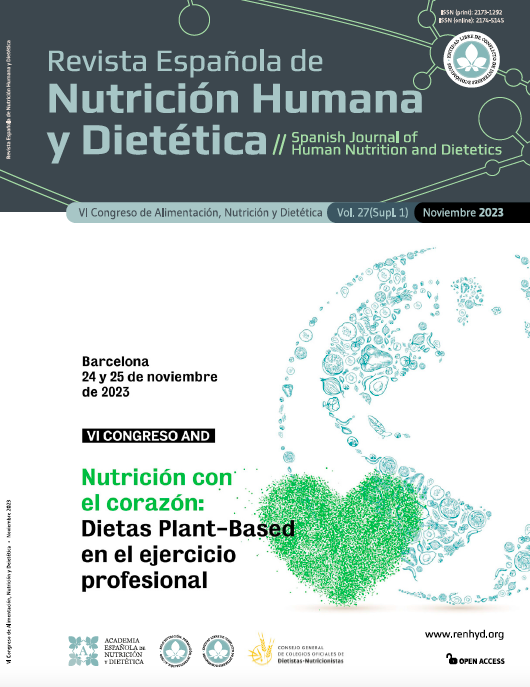Flexitarianismo: proteína láctea y vegetal en la sostenibilidad alimentaria
Keywords:
-Abstract
-
References
(1) Springmann M, Clark M, Mason-D’Croz, Wiebe K, Bodirsky BL, Lassaletta L, de Vried W, Vermuelen SJ, Herrero M, Carlson KM, et al. Options for keeping the food system within environmental limits. Nature. 2018. Disponible en: https://doi.org/10.1038/s41586-018-0594-0.
(2) Poore J, Nemecek T. Reducing food’s environmental impacts through producers and consumers. Science. 2018; 360: 987-92. Disponible en: Reducing food’s environmental impacts through producers and consumers (science.org).
(3) Willett W, Rockström J, Loken B, et al. EAT-Lancet Commission Summary report: Food in the anthropocene: the EAT–Lancet Commission on healthy diets from sustainable food systems. Lancet. 2019; 393(10170): 447-492. www.thelancet.com/commissions/EAT.
(4) E. Halloström, A. Carlsson-Kanyama, P. Börjesson (2015). Environmental impact of dietary change: a systematic review. C. Chen, A. Chaudhary, A. Mathys (2019). Dietary Change Scenarios and Implications for Environmental, Nutrition, Human Health and Economic Dimensions of Food Sustainability.
(5) Chen C, et al. Dietary Change Scenarios and Implications for Environmental, Nutrition, Human Health and Economic Dimensions of Food Sustainability. Nutrients. 2019; 11:856. doi: 10.3390/nu11040856.
(6) Michael Clark, et al. (2022) Estimating the environmental impacts of 57,000 food products. PNAS Environmental Impacts of Food Production - Our World in Data.
Downloads
Published
How to Cite
Issue
Section
License
Copyright (c) 2023 Charo Saavedra Coutado, Antonio Torres Hernández

This work is licensed under a Creative Commons Attribution-NonCommercial-ShareAlike 4.0 International License.











